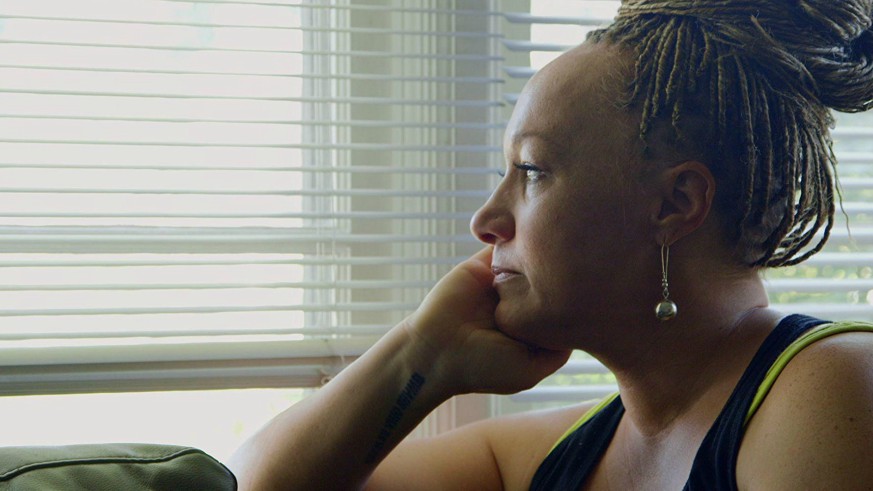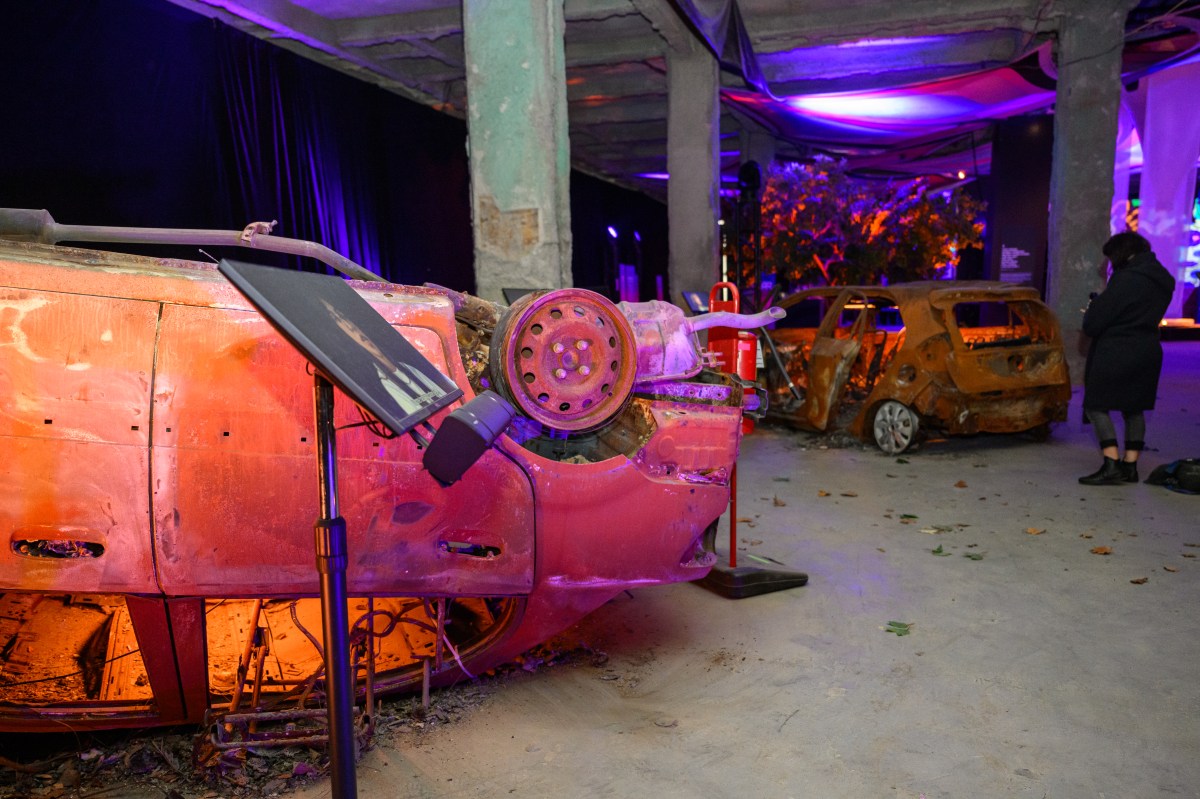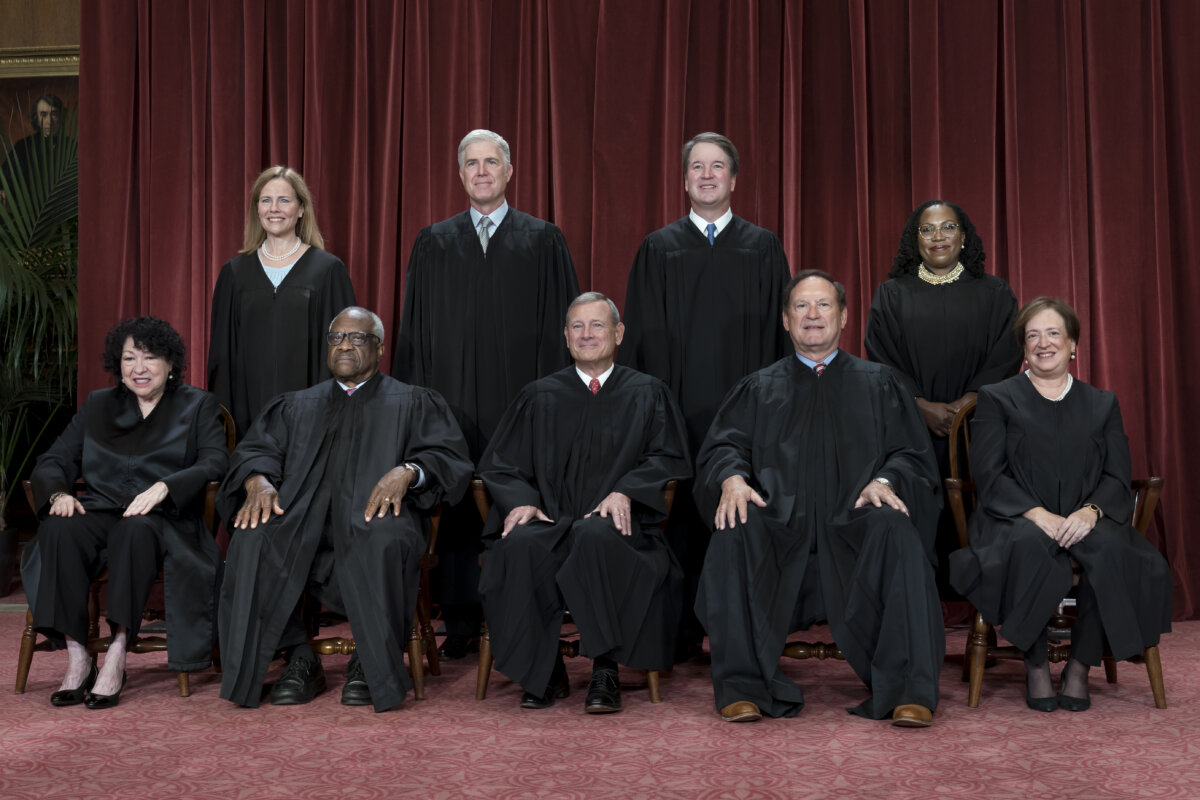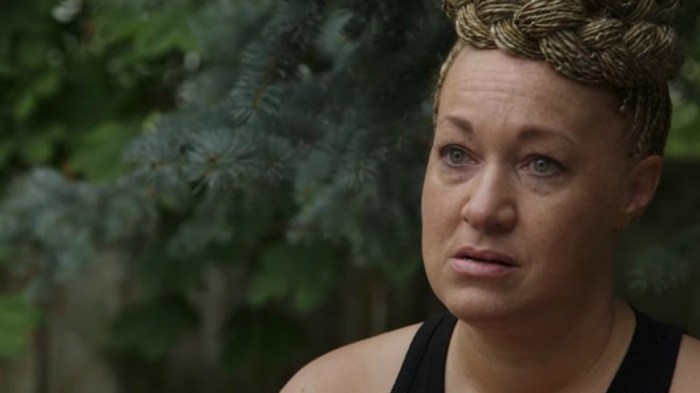A documentary revolving around Rachel Dolezal ,who was sacked as the president of the NAACP chapter in Spokane, Washington, after it emerged she had lied about being black, was always going to provoke a wide range of reactions.
Director Laura Brownson encouraged these hearted discussions during production, too, which is why she made sure that her producers and crew each had different opinions on Dolezal, ranging from sympathetic to disgust.
One producer even encouraged Brownson to edit her interviews with Dolezal, which were shot over 2 years, completely out of the film, and to instead focus on the impact she has made.
I recently had the chance to talk to Brownson about these creative disputes, “The Rachel Divide” and her concluding feelings about Dolezal, while she also recalled the civil rights activist’s emotional response to the film.
How did you first come across the story of Rachael Dolezal?
I was like many people in June of 2015 that saw the viral interview of Rachel Dolezal like a rabbit in the headlights. Which piqued my interest. I really started to pay attention to society’s reaction to Rachel, though. I got fascinated by those reactions. That made me wonder if there was a film here, not just about Rachel, but about society’s big feeling to this person. It was July 2015, about a month after the story broke, that I tracked her down via some mutual connections at the NAACP. I met her in Spokane and was struck with the idea that somehow this one woman in this small town in her little house and her normal family had sparked this national controversy and I wanted to dig in and figure it out. I pitched the idea to her and the story was really unfolding every day and something new was happening. It felt like we needed to start the filming that day.
When did you start filming?
We started filming in August 2015 and I filmed for over 2 years.
Was it hard to put your own opinions of her to one side?
Of course. I think the weight of the media and the way that the 24 hour news cycle works is that news can only go so deep. It is a headline. It is a 2 minute story. A 4 minute story. It leaves us with big impressions that are not always the correct impressions. I didn’t know what to expect when I met Rachel. To be honest I was confused. When I met her she is a mother, intelligent, and was seemingly living a very normal life. Certainly before this happened. Quickly she became humanized. Over 2 years we pulled back the layers and got deeper into the complexity of Rachel as a character. The deeper we got the more elusive she became, and with it the truth.
What was your feeling of Rachel when you had finished filming?
As a human being I worry about Rachel and her family. To me the heart and soul of the film rests in her family and her children. They are the shining stars and the moral compasses of the movie. I of course care deeply about her family. I worry for them. I want them to all be OK. For them to be OK, ideally, Rachel will be able to find a job. Rachel will be able to find her footing somehow or somewhere. And that is yet to happen.
What was Rachel’s reaction to the film? Were you with her when it was screened?
We did screen it for her. A group of us went to Spokane and Rachel, Franklin, Iziah, and Esther watched it. It was a difficult thing to do. The film is clearly not an apology piece for Rachel. It is not a piece of propaganda. There are highly critical parts of the film. The film finished and Rachel was physically upset. It is hard for anyone to be challenged. It is that much harder for Rachel because she has been met with so much criticism. It was hard for her to see. What ultimately made her soften, not completely, but a bit, was that her sister and her children were able to speak their bit and they were portrayed in such a positive light. And the film really empowered them to say what they wanted to say and how the scandal impacted their lives. Rachel really wanted them to have that and she took some solace in that reality.
Do you think Rachel thought this was a chance to apologize?
The film was never presented as an option for her to apologize. It was really important that were were separate entities, because the film raises such important issues. I didn’t pay her. She didn’t have any creative control. I do think that Rachel is always trying to find a way to be understood. But there is always a degree of ego involved in anyone who says yes to a documentary about themselves.
Did you ever feel guilty when making the film?
Well, it was a long process. I shot with them for two years. In the beginning of the story no-one really knew where all of this would land. We didn’t know whether Rachel was going to rise back to glory like a phoenix from the ashes. That of course did not happen. So in the beginning everyone was a willing participant in the documentary. And they were quite relieved to explore and explain the fallout and the impact of what had happened. All of the kids really wanted to tell that part of the story, and were thankful that the film gave them that opportunity. That one scene where Franklin is frustrated with me and the documentary, that was 2 years into the filming. And he is a teenager, and he just wants life to go back to what it was. I felt as a filmmaker it was really important to include that scene, but that showed his frustration about everything that was going on. But ultimately Franklin loves his mum. And if I was to giver Rachel a compliment it is that she is a good mother. As far as the ethics are concerned, I am a documentary filmmaker and I do believe that there is power in showing these stories. I never felt exploitative in my approach to Rachel or the kids.
Were you ever going to take Rachel’s interviews out?
One of the unique aspects of this film is that I actively sought out producers and a team that had various opinions of Rachel. Raging from highly critical to sympathetic to those that were in the middle. We all rode this rollercoaster of feeling sympathy for Rachel and then we would do an interview with someone from the black community and we’d find our empathy swinging a little. There was one moment where one of our producers said, ‘It is so important that we hear from those that are having strong reactions to Rachel that perhaps we should leave her out of the movie.’ That was never my idea or something I considered. But it was thrown out on the team just once.
What is your opinion of Rachel now?
My opinion of Rachel is that she has come from an extraordinarily complicated back story and family life that has created a very complicated human being. She has endured a lot. But has ultimately created a reality that she wants to stick to. Ultimately, and I think the thing that was most unpredictable to me, is that Rachel has stuck to her story from day one. It has not altered from the beginning to the end. I learned how determined of a human being Rachel Dolezal is. She is steadfast in what she is doing.
“The Rachel Divide” is now available on Netflix.
















